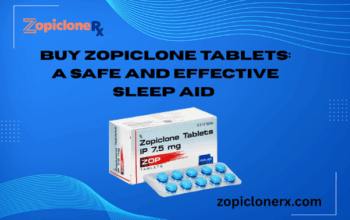Maintaining gut health is essential to general health since the digestive tract is home to 70% of the immune system. The process of digestion involves breaking down food so that nutrients and energy may be absorbed into the circulation and distributed to every cell in the body. Chewing and swallowing are the initial stages in the process, which starts in the mouth. The starch in the meal may aid in digestion by being broken down into smaller molecules by an enzyme in our saliva.
How Better Digestion Works?
The oesophagus is the tube that connects the throat to the stomach after food has been swallowed. The muscles around the ringlike valve that restricts food from passing from the oesophagus to the stomach relax when food is close enough to pass through. The upper abdomen often displays a holding area. Small pieces of food are moved down the stomach by the contractions of the stomach’s muscles one at a time. In the stomach, food interacts with digestive fluids, stomach acid, an enzyme that breaks down protein, and other liquids to become liquid. Malabsorption describes this condition. After that, it moves more slowly through the small intestine. The Thrive patch helps your body absorb nutrients directly from the patch, so it can support your digestion as well.
Problem With the Bile
The liver secretes bile, which mixes with food in the digestive tract. Bile is stored in the gallbladder, but it is released into the bile ducts and ultimately the small intestine during digestion, where it aids in the breakdown of fat into liquid form. The breakdown of the dissolved fat is completed by pancreatic and intestinal enzymes.
- Finally, the digestive tract’s lining absorbs all of the nutrients, and the circulatory system carries them to their final destinations, where they are either stored or undergo further chemical changes.
- Garbage, including as dead cells and undigested bits of food, is produced as a byproduct of the process. The colon is where all of this garbage goes to wait to be removed by the intestine.
- All of your body’s systems might fail if you don’t give enough attention to digesting, absorbing, and eliminating the food you eat.
Lack of stomach acid or digestive enzymes may be at blame if you have trouble breaking down your food. This condition is common, and it may be caused by things like poor diet and too much stress. In the case of an enzyme deficiency, the body will transfer enzymes from other organs to the digestive system. These enzymes play a crucial role in controlling immune system responses and cellular processes. The enzymes in processes and systems unrelated to digestion might be depleted as a consequence. Improving the efficiency of your digestive system is one of the most important things you can do for your health.
Here are some broad guidelines
Water intake should be high, but you should not do so while eating. While it’s important to drink enough water throughout the day, doing so just before a meal may actually hinder digestion and lead to tummy trouble. You should drink water 15-30 minutes before a meal and then wait an hour or so before sleeping.
Conclusion
The enzymes and nutrients in raw fruits and vegetables are more bioavailable than those in cooked foods. Avoid artificial sweeteners, chemical food additives, colors, and preservatives as well as overly processed grains and focus on eating real foods to keep your digestive system running smoothly. Raw fruit and vegetable consumption is an excellent approach to get nutrients and enzymes that might be lost during cooking. Try to get the majority of your calories from whole, natural foods rather than processed options.




